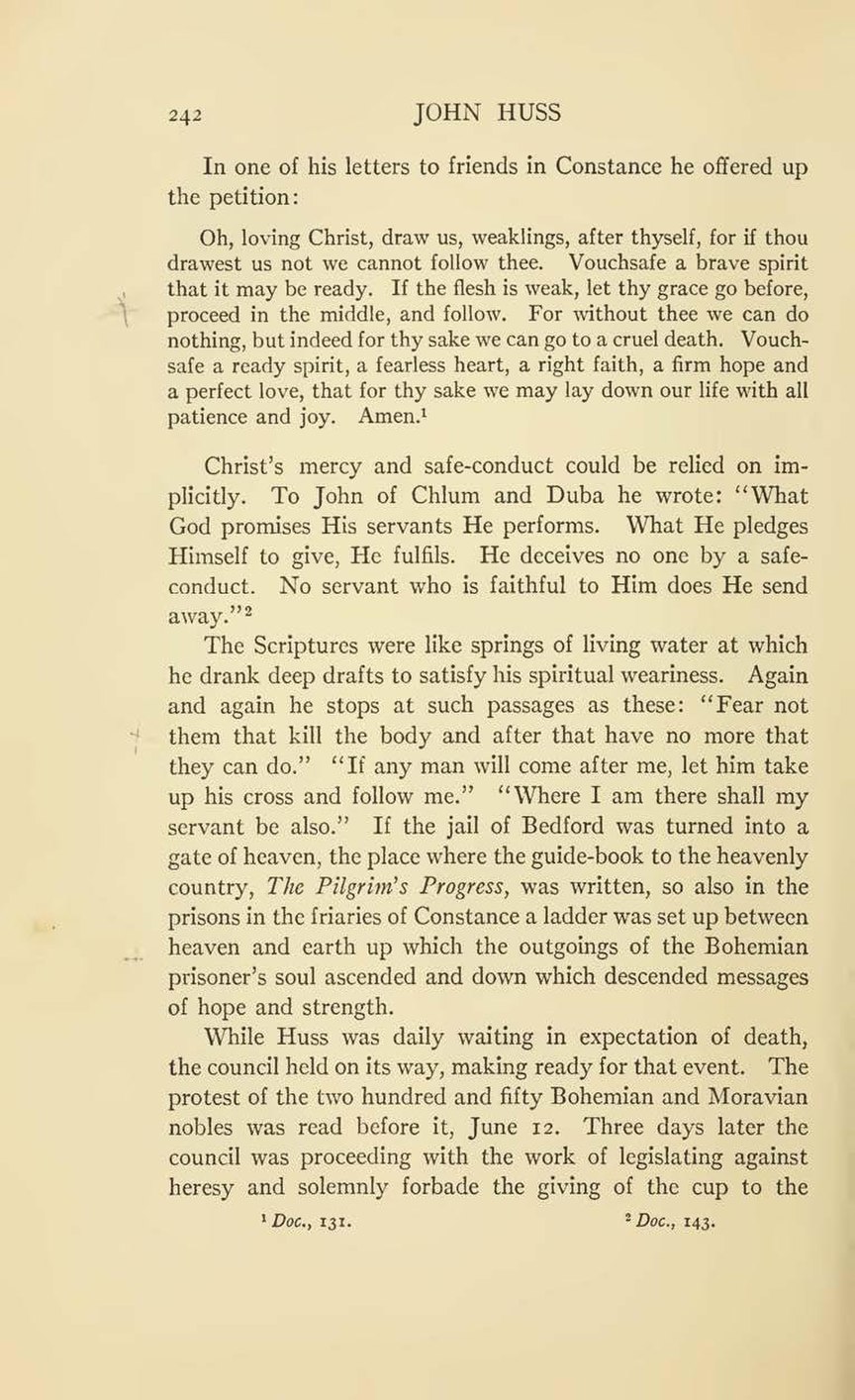In one of his letters to friends in Constance he offered up the petition:
Oh, loving Christ, draw us, weaklings, after thyself, for if thou drawest us not we cannot follow thee. Vouchsafe a brave spirit that it may be ready. If the flesh is weak, let thy grace go before, proceed in the middle, and follow. For without thee we can do nothing, but indeed for thy sake we can go to a cruel death. Vouchsafe a ready spirit, a fearless heart, a right faith, a firm hope and a perfect love, that for thy sake we may lay down our life with all patience and joy. Amen.[1]
Christ’s mercy and safe-conduct could be relied on implicitly. To John of Chlum and Duba he wrote: “What God promises His servants He performs. What He pledges Himself to give, He fulfils. He deceives no one by a safe-conduct. No servant who is faithful to Him does He send away.”[2]
The Scriptures were like springs of living water at which he drank deep drafts to satisfy his spiritual weariness. Again and again he stops at such passages as these: “Fear not them that kill the body and after that have no more that they can do.” “If any man will come after me, let him take up his cross and follow me.” “Where I am there shall my servant be also.” If the jail of Bedford was turned into a gate of heaven, the place where the guide-book to the heavenly country, The Pilgrim’s Progress, was written, so also in the prisons in the friaries of Constance a ladder was set up between heaven and earth up which the outgoings of the Bohemian prisoner’s soul ascended and down which descended messages of hope and strength.
While Huss was daily waiting in expectation of death, the council held on its way, making ready for that event. The protest of the two hundred and fifty Bohemian and Moravian nobles was read before it, June 12. Three days later the council was proceeding with the work of legislating against heresy and solemnly forbade the giving of the cup to the
